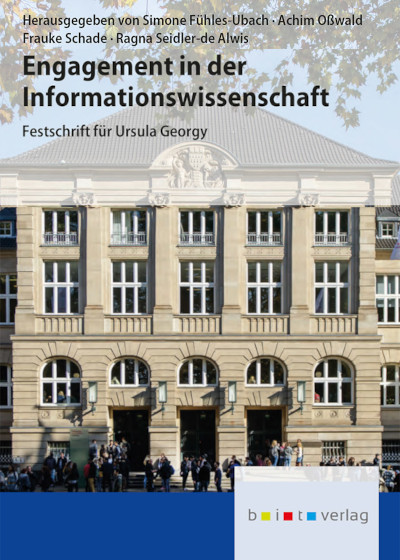 WEITERE NEWS
WEITERE NEWS
- Projekt „Land.schafft.Demokratie. – Vielfalt und Dialog in der Bibliothek“: Neue Ausschreibung für 2026 ist gestartet!
- UTB gewinnt neuen Partnerverlag für Scholars eLibrary
- Clarivate explores sale of Life Sciences & Healthcare business – Research Information
- Partnerschaft für den Vertrieb von EBSCO eBooks in der DACH-Region bekannt
- Vorlesewettbewerb 2026: Lesebegeisterung erlebbar machen
- Alte und neue Heimat historischer Leopoldina-Mitglieder: Nationalakademie lädt zum Tag der Archive
- Loewe führt das Label "Ohne KI" ein
- Föderal verankert, übergreifend wirksam: Die Rolle der FDM-Landesinitiativen im nachhaltigen FDM-Gesamtsystem

Aktuelles aus
L
ibrary
Essentials
In der Ausgabe
- Soziale Medien und Aufmerksamkeitsentwicklung bei Kindern: Neue Langzeitdaten zur ADHS-Risikodiskussion
- Repositorien im Wandel: Analyse zentraler Einflussfaktoren für die nächsten Jahre
- Wie inklusiv Sammlungen in Bibliotheken und Archiven wirklich sind
- Synergien von KI-Chat und Suche:
Wie unterschiedliche Altersgruppen
Information Retrieval neu gestalten - Kulturerbe-Daten im Zeitalter der KI:
Ein neues Zugangsmodell für Institutionen - Jugendliche, soziale Medien und KI-Chatbots: Digitale Nutzungsrealitäten 2025
- Buchclubs als unterschätzte Brücke zwischen Campusleben und Bibliothek: Neue Impulse aus US-Hochschulbibliotheken
- AI Librarian in Japan
- Altersgrenzen für soziale Medien:
Europas nächste Regulierungsdebatte - KI und Journalismus:
Neue Machtverschiebungen
im Markt für Nachrichteninhalte - Print ist tot, es lebe Print!

fachbuchjournal























































